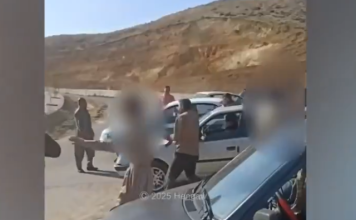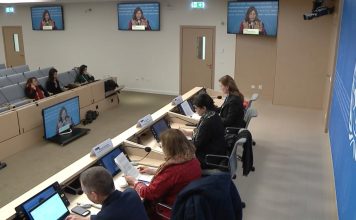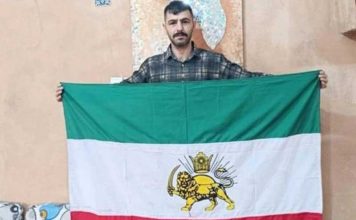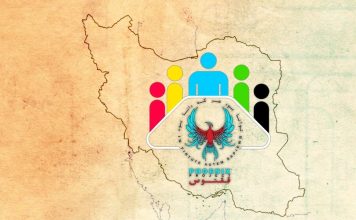There were 25 percent more executions in Iran in 2021 than there were in 2020, according to a report on the use of the death penalty by the Islamic Republic.
The report was released on April 28 by the Oslo-based non-governmental organisation Iran Human Rights (IHR), and the Paris-based Together against the Death Penalty (Ensemble Contre La Peine de mort-ECPM). It was launched in an online event.
The report “paints quite a harrowing picture of the use of the death penalty in Iran,” said Dr. Azin Tadjdini, a legal expert working at the United Nations Office of the High Commissioner for Human Rights (OHCHR).
The authors of the report attributed the surge in executions to changes in the country’s leadership and the 2015 nuclear deal. They also noted that 84 percent of executions in 2021 were unannounced by authorities before they were carried out.
ANNUAL REPORT
ON THE DEATH PENALTY
IN IRAN 2021
Iran is the second most active country after China for its use of the death penalty and is the world’s most prolific executioner of women and children.
“This report clearly demonstrates that the death penalty is used as a political tool or a tool for oppression. We had twice as many executions after the presidential elections in June, while Iran and Western countries were in direct negotiations on the nuclear deal,” said Professor Mahmood Amiry-Moghaddam, IHR’s founder and co-author of the report, in an interview with Kayhan Life.
“We experienced that once before, during the first round of nuclear negotiations in 2015. We had the highest number of executions during the last two decades. And in 2013, we also had a doubling of executions after the presidential election when [former President of Iran, Hassan] Rouhani was elected,” he added.
“It seems that Iranian authorities feel they are under less scrutiny when they are negotiating the nuclear deal. So that’s why we think it’s paradoxical that Iran executes more people when they are sitting face to face with European governments which are among the strongest opponents of the death penalty. A sustainable agreement will not be reached unless Iran’s human rights situation, and the situation of the death penalty in particular are put at the top of the agenda,” Amiry-Moghaddam said.
[aesop_image img=”https://kayhanlife.com/wp-content/uploads/2019/01/2007-08-02T120000Z_1744947733_GM1DVVLBCSAA_RTRMADP_3_IRAN-RIGHTS-EXECUTION.jpg” panorama=”off” credit=”REUTERS/FILE PHOTO” align=”center” lightbox=”off” captionsrc=”custom” caption=”A girl attends the hanging of Majid Kavousifar and Hossein Kavousifar in Tehran, Iran. ” captionposition=”left” revealfx=”off” overlay_revealfx=”off”]
Human rights campaigners have accused the US, the UK and the EU of failing to address Iran’s alleged human rights abuses during the nuclear deal negotiations in Vienna, in an effort to finalize the agreement.
The report held that while most executions in 2021 related to criminal charges, there was “a meaningful correlation between the timing of executions and political events.” Execution rates typically decreased in the weeks running up to parliamentary and presidential elections, to Nowruz [the Persian new Year] and to the holy month of Ramadan. However, executions rose sharply after elections and when authorities expected protests to occur, the report said.
CORRELATION BETWEEN THE NUMBER OF EXECUTIONS AND POLITICAL EVENTS
Executions for drug-related crimes rose fivefold: from 25 executions in 2020 to at least 126 executions in 2021, according to the report.
“For the first time in the history of the Islamic Republic, thanks to pressure from the international community and human rights groups inside Iran and outside, Iranian authorities had to pass a law in 2017 resulting in the significant reduction of drug-related executions,” Amiry-Moghaddam said. “This trend is now in reverse. The very disturbing part is that there are no reactions by the United Nations Office on Drugs and Crime which has projects inside Iran, or by Western countries donating to the budget of UN projects inside Iran.”
Other attendees of the online launch event included Aminata Niakate, an attorney based in Paris and ECPM member; and ECPM project manager Mathilde Millier.
Speaking in French at the event, Niakate gave a summary of calls, resolutions and recommendations to end Iran’s use of the death penalty by the US, the EU and international human rights organizations.
Included in the report were trends relating to the executions of children and women. The report noted that while Iran had ratified the United Nations Convention on the Rights of the Child — which prohibits child executions —Iranian authorities executed at least two children in 2021. One of the child offenders had committed murder while defending himself against a rape.
The exact number of child executions in Iran is unknown, as information about juvenile offenders is not collected in many Iranian prisons. Javaid Rehman, the UN Special Rapporteur on the situation of human rights in the Islamic Republic of Iran, has called on Iran to implement legislation banning child executions in his latest annual report published Jan. 13 and submitted to the UN’s Human Rights Council (UNHRC).
Women were also subjected to executions in Iran in 2021, with at least 172 women executed between 2010 and 2021. The report held that of the 16 women reported to have been executed globally in 2020, nine of the women were executed in Iran.
The figure almost doubled in 2021, with at least 17 women executed in Iran, according to the report. Two executions of women involved in domestic violence cases were personally carried out by their own children, and eight of the women who were executed remain unidentified.
[aesop_image img=”https://kayhanlife.com/wp-content/uploads/2022/05/432.jpg” panorama=”off” credit=”KL./” align=”center” lightbox=”off” captionsrc=”custom” captionposition=”left” revealfx=”off” overlay_revealfx=”off”]
The report offered several recommendations for the international community to help restrict the death penalty in Iran including: prioritizing human rights violations in any future talks and negotiations with Iran; supporting the mandate of the Special Rapporteur on human rights in the Islamic Republic of Iran; encouraging Iran to move towards a complete abolition of the death penalty; advocating for wide-reaching judicial reforms to end practices such as forced confessions and torture; removing Iran’s Revolutionary courts; and to call for the immediate release of all human rights defenders in Iran’s prisons.







